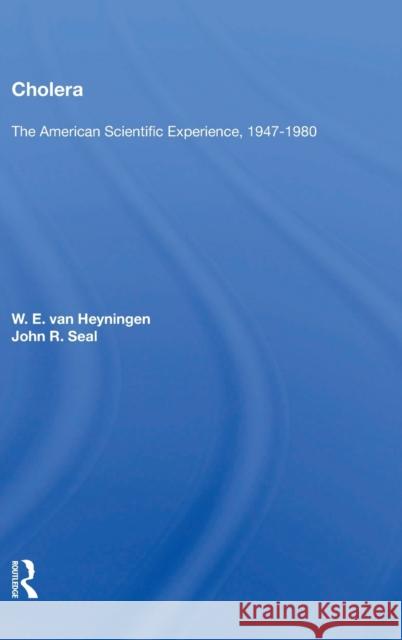Cholera: The American Scientific Experience, 1947-1980: The American Scientific Experience, 1947-1980 » książka
Cholera: The American Scientific Experience, 1947-1980: The American Scientific Experience, 1947-1980
ISBN-13: 9780367019334 / Angielski / Twarda / 2019 / 366 str.
Cholera: The American Scientific Experience, 1947-1980: The American Scientific Experience, 1947-1980
ISBN-13: 9780367019334 / Angielski / Twarda / 2019 / 366 str.
(netto: 666,90 VAT: 5%)
Najniższa cena z 30 dni: 654,86 zł
ok. 16-18 dni roboczych.
Darmowa dostawa!
Cholera—the dehydration disease that can be fatal in just one or two days—has been one of mankind's most tenacious and enigmatic adversaries. Its well-documented history is the story of the vagaries of a disease that originated in the Ganges delta, where it causes annual epidemics, whose European incarnation is as old as the Battle of Waterloo, and which was responsible for six pandemics in the nineteenth century alone, three reaching the United States, claiming 300,000 lives altogether. This book records the role of U.S. medical science in the most recent—and finally successful—campaign against cholera. Drs. van Heyningen and Seal describe the first large-scale American research encounters with cholera, in Cairo in 1947 and in Bangkok in 1959. The authors then trace the growth in U.S. scientific and political interest in the eradication of cholera and describe the medical research and training facilities founded by the United States in Asia. There were failures as well as successes—exhaustive field trials of cholera vaccine proved ineffective—but eventually a simple oral treatment was found, and, in the process, advances were made toward the treatment of other dehydration diseases. The authors devote an entire chapter to the biochemistry underlying the physiology of cholera because its implications reach far beyond the disease itself and throw light on many aspects of normal and abnormal biochemistry. They also recall the debt of modern cholera research to earlier discoveries, which were too often neglected. This extraordinary history of one of the most important developments in medicine concludes with an account of how, with the emergence of the independent republic of Bangladesh, the U.S.-dominated cholera research laboratory was, with good will, transformed into a locally controlled international center for the study of diarrhoeal disease and related problems.











